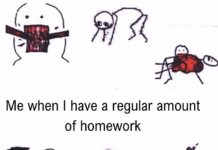
Disclaimer: This staff editorial contains mentions of death and suicide and may be triggering to some readers. Please use caution before reading.
If you or someone you know needs help, local help is available through campus police (724-738-3333), the counseling center (724-738-2034) and student support (724-738-2121). Other resources include the National Suicide Prevention Lifeline (1-800-273-TALK) and the Crisis Text Line (text “HOME” to 741741).
One step forward can pave a path towards continuing the conversation and ending the stigma surrounding mental health.
Each year, 1,100 college students nationwide die by suicide, according to the U.S. National Library of Medicine. In our community, we lost three of our own SRU classmates to suicide within the past year.
This Suicide Prevention Week, which takes place Sept. 8-14, we want to remember the lives of the students we lost this year while also recognizing that we can take back control over the stigmas enforced upon society by unfair expectations and a lack of mental health awareness.
We recognize that, in Pennsylvania, suicide is the second leading cause of death for people between 15-34 years old, according to the American Foundation for Suicide Prevention’s 2019 state facts.
We recognize that 39 percent of college students experience a significant mental health issue, yet two-thirds of students who experience anxiety and depression don’t seek treatment, according to Active Minds.
We recognize that, as part of one of the populations most impacted by mental health and suicidal ideation, we need to do something about this crisis, starting with our neighbors and classmates and expanding outward to a greater audience from there. After all, everyone’s mental health and overall well-being matters.
This means that we must keep the conversation about mental health and suicide going long after Suicide Prevention Week. We need to normalize these conversations and make it more comfortable to ask a friend “How is your mental health?” or “I notice you haven’t been yourself, is everything OK?”
This includes the recognition that certain groups of students, including people of color and people in the LGBTQ+ community, are at a higher risk for attempting suicide and must be at the forefront of the conversation concerning suicide prevention.
As for The Rocket, we are committed to serving as a public forum for students, professors and administrators to continue the conversation about suicide prevention and mental health awareness to reduce the stigmas related to those conversations. We are dedicated to ensuring that anyone on campus or in the Slippery Rock community, regardless of their identity or circumstances, has a voice and feels they are represented on this campus.
However, our role as news media reporting and mourning during this mental health crisis will soon go beyond our role at Slippery Rock and even Pennsylvania.
This semester, SRU’s chapter of the Society of Collegiate Journalists (SCJ), which is led by the staff of The Rocket, will organize a T-shirt fundraiser to raise money for grants. These grants will be available to SCJ chapters nationwide to help student journalists across the country investigate the mental health crisis in their own colleges.
While the fundraiser is in the early planning stages, our mission is to provide opportunities for other student journalists to help normalize the conversations surrounding suicide and mental health at campuses across the United States.
However, our words and our vows to create an open forum for all students and community members to join in are only a seemingly small part of our fight to prevent suicide.
We need to be active advocates. We are regaining control of not only the conversation about mental health but also the power to do something to enact change.
In the fight to prevent suicide, a single step might be just that “something” someone needs.
That step may be walking with someone to the counseling center or even asking someone for support if you decide to seek help.
That one step might be reading more about mental health on college campuses or even joining a club or activist group.
You could go a step further by exploring mental health or suicide prevention for a class assignment or travel to Harrisburg to advocate for legislative reform.
Maybe you decide to become mental health first aid certified or you help set up the flag display in the quad in memoriam of those we lost to suicide.
If we all do one thing to better educate and advocate for ourselves in the chance we can ever have a conversation about mental health or suicide, all of those single steps we have taken create a ripple effect that just might save a life in our own community.
The number of possible first steps may seem overwhelming, but committing to one step to prevent suicide gives us the chance to take control over a devastating epidemic. After all, there is not one single solution to prevent suicide, but one step forward is still progress in the right direction.
And if every student, professor, administrator and faculty member at Slippery Rock University commits to that one extra step, that’s nearly 10,000 more steps forward than we were ever before.
Don’t wait to make a change. The time for action is now, and it starts right here with each and every single one of us.
You never know the impact you might have on someone; you might just save a life.
For more information about resources and year-long suicide prevention action steps, visit:
- SRU Student Support
- Submit a Care Report
- National Alliance on Mental Illness (NAMI) – Butler County
- National Suicide Prevention Lifeline
- American Foundation for Suicide Prevention
- Crisis Textline
- Victim Outreach Intervention Center (VOICe)
- Mental Health America
- Substance Abuse and Mental Health Services Administration (SAMHSA)





